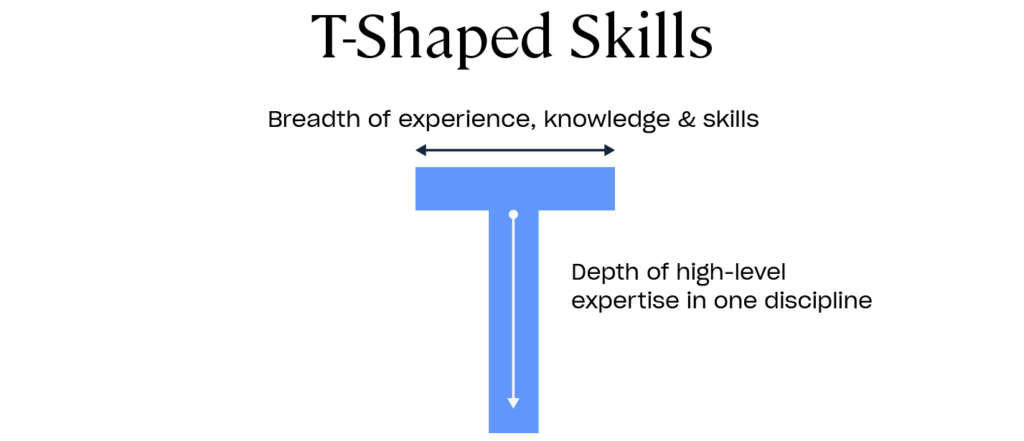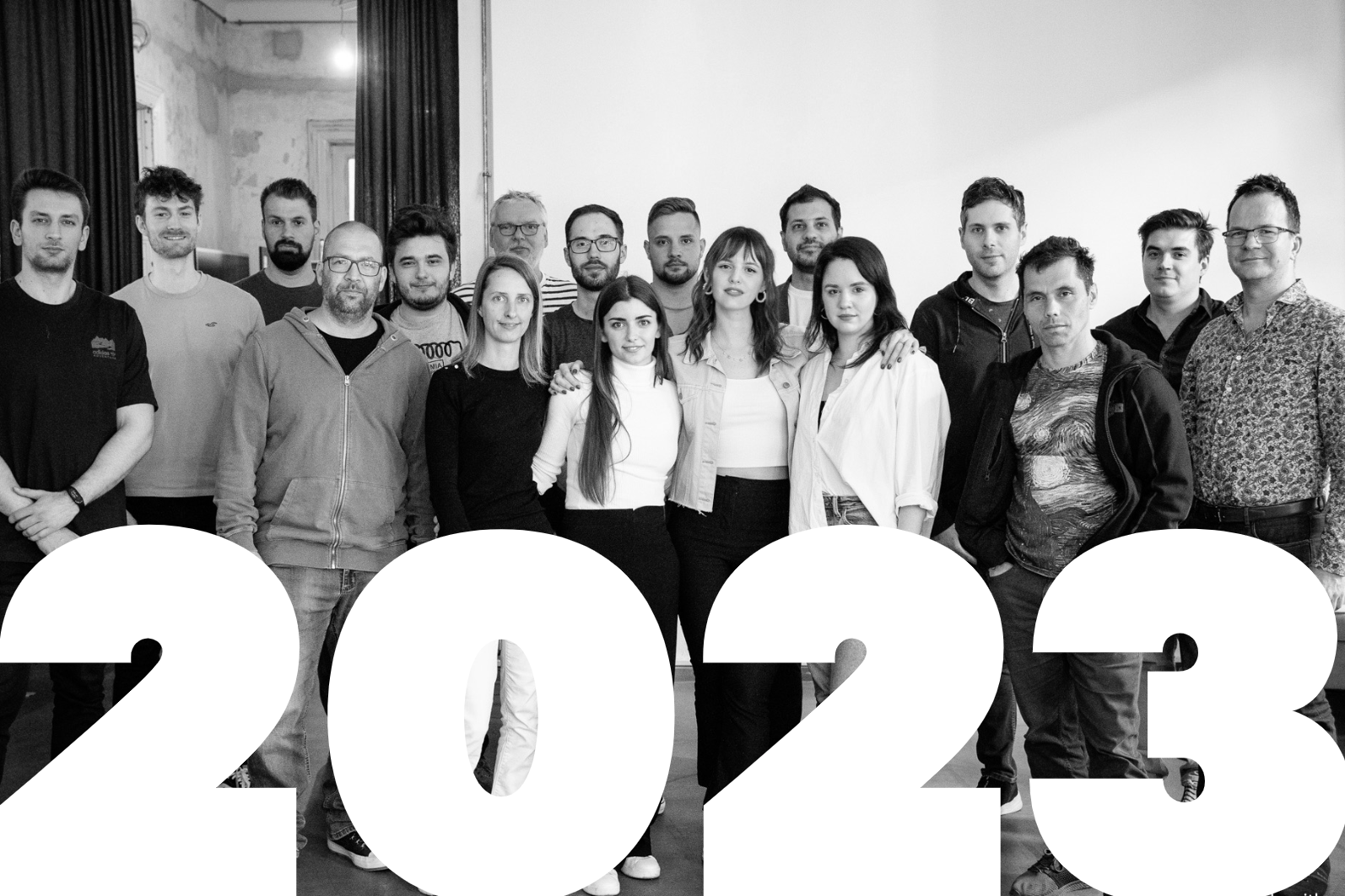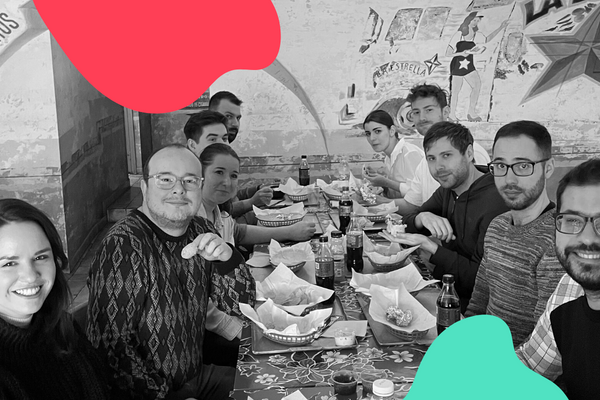Navigating the world of engineering internships

We held a webinar in collaboration with McDaniel College this April to educate students about the unique and essential aspects of engineering internships. We decided to turn our presentation into an article as it might be helpful for other aspiring engineers too. Let’s dive right in!
Why engineering internships are important
Engineering internships are essential for anyone seeking to establish a successful career in the field of engineering. They offer an excellent opportunity to gain practical work experience, build professional skills, and adapt to a team environment. Internships also help in developing social skills, expanding your network, and increasing employability. In this competitive job market, where experience and skills matter the most, engineering internships provide a unique chance to get a head start in your career. Through internships, you can learn how to apply your knowledge to real-world situations, gain exposure to different areas of the field, and develop an understanding of the industry’s standards and practices. This article will further explore the importance of engineering internships and compare the different types of workplaces where you can start this journey.
Choosing the right company for your engineering internship
When it comes to your internship, one of the most important decisions you’ll have to make is choosing the right company to work for. To help you make an informed decision, we’ve put together a few comparisons to list the advantages and disadvantages of interning with different companies. By weighing the pros and cons of each, you can determine which type of company is the best fit for your career goals and personal preferences.

Small vs. large company?
While some students may prefer the prestige and resources of a large corporation, others may find smaller companies more appealing due to their hands-on experience and greater autonomy. Let’s see what we collected for both!
Small companies:
| Pros | Cons |
|---|---|
| More autonomy and input on decision-making | Can be less resources available, including budget, equipment, and support staff |
| Opportunity to work on a wider range of tasks and projects | May have to work on projects outside of area of expertise or interest |
| Closer working relationships with colleagues and potential for greater collaboration | Less opportunity for specialization and focused roles |
| Less bureaucracy and more flexibility in work processes and procedures | Can be more intense and demanding work environment |
| Greater potential for individual recognition and impact on project success | May have limited opportunities for career growth and advancement within the company |
Large companies:
| Pros | Cons |
|---|---|
| A more diverse range of skills and experiences to learn from | May have less autonomy and input in decision-making |
| Opportunity to work on larger, more complex projects | May have to work within a more rigid organizational structure |
| More opportunities for specialization and focused roles | Communication and coordination can become more complex and challenging |
| More resources available, including budget, equipment, and support staff | More potential for office politics and competition |
A product company vs. a consultancy?
Another critical decision you’ll have to make is deciding between a product company and a consultancy. Both types of companies offer unique opportunities for interns, each with its own set of advantages and disadvantages. Product companies are known for creating and selling products, while consultancies are hired by clients to provide expertise and solutions to specific problems. Deciding which type of company to intern with will depend on your career goals, personal interests, and desired work environment.
Product company:
| Pros | Cons |
|---|---|
| Opportunity to work on a specific product and become an expert in that domain | Have to work on a product with a long development cycle |
| Typically more stability in terms of roles and teams | Less flexibility to work on a variety of projects |
| Opportunity to work on a large, established codebase with an established team and development process | Limited control over product direction and decision-making: working on a legacy code which is hard to maintain |
| Have more clear, long term product goals and predictable deadlines | Less creative freedom in terms of development and design decisions (often uses outdated stacks) |
Consultancy:
| Pros | Cons |
|---|---|
| Opportunity to work on a variety of projects with different modern technologies and industries | May have less opportunity to become a specialist of a specific field |
| More creative freedom in terms of development and design decisions | You always have a client to deal with |
| More control over project direction and decision-making | You have to be flexible: learn new technologies, work full-stack, start/stop a project |
| Can learn quickly and gain experience working on multiple projects with diverse teams | Working on projects that don’t align with personal interests or values |
IT company vs. a non-IT company?
As you explore different engineering internship opportunities, you’ll come across both IT and non-IT companies. IT companies are known for developing and providing technology solutions, while non-IT companies operate in other industries such as finance, healthcare, or retail. Interning at an IT company can provide you with a unique opportunity to learn about cutting-edge technologies and work on innovative projects. In contrast, interning at a non-IT company can give you exposure to different industries and allow you to apply your engineering skills to real-world problems outside of the tech space.
| IT Company | Non-IT company |
|---|---|
| Primarily focused on developing and maintaining software products or services | Development of software as a support function for the primary business operations of the company |
| Typically larger engineering teams, with a greater focus on technology and innovation | Can vary, but generally smaller and with a more diverse range of business operations |
| Fast-paced, dynamic and highly collaborative work environment | Software engineering skills are important but may be supplemented by other business or industry-specific knowledge |
| Opportunities for career growth and advancement within the IT field, such as technical lead or project manager roles | Limited opportunities for career growth within the software engineering field, but could potentially expand into other areas of the company |
| Emphasis on innovation, experimentation and risk-taking, as well as a strong sense of community among developers | Maybe a more traditional work culture, but can still offer opportunities for teamwork and collaboration |
Skills and qualifications required for engineering internships
Engineering internships require a combination of technical and non-technical skills. Hard skills such as programming, problem-solving, and technical writing are crucial for an engineering intern to have, as they form the foundation of the job. Soft skills, such as communication, teamwork, and time management, are also essential for success in an internship. These skills help interns effectively communicate their ideas and collaborate with their colleagues to achieve project goals. While some hard skills may be taught in school, soft skills often come from real-world experience. Therefore, internships provide an excellent opportunity for aspiring engineers to develop both hard and soft skills in a professional environment.
Technical skills
As a newbie engineer, you may only have a chance to acquire technical skills in a school or a course. However, there are multiple ways to gain relevant technical knowledge, even if you don’t have work experience. Here are some tips
- Making open-source pet projects is a great way to gain practical experience and showcase your skills to potential employers. By working on your own projects, you can experiment with new technologies and learn at your own pace.
- Contributing to the development community is another way to gain relevant technical knowledge. By sharing your knowledge with others, you can get feedback on your work, learn from more seasoned developers, and network with great, possibly useful connections.
- Attending online coding competitions is a fun and challenging way to hone your skills and learn from other coders. These competitions often feature real-world problems and require creative solutions, making them an excellent way to develop your problem-solving skills.
- Participating in hackathons is a popular way to gain practical experience in a short amount of time. These events bring together developers and designers to work on a project over a set period, often resulting in innovative solutions and networking opportunities.
- Visiting meetups and workshops is an excellent way to learn and network with like-minded individuals. These events often feature talks from industry experts and provide opportunities to meet potential employers and collaborators.
You should definitely list all of these things in your resume, as they clearly show your enthusiasm and willingness to learn at work.
In addition, we suggest you aim for full-stack development and have as broad stack knowledge as possible, as it gives you a lot more opportunities in the long term.
Soft skills
As an intern, it’s important to remain open to new opportunities and be flexible in your approach. While it’s important to have ideals and goals, it’s also crucial to be realistic about your expectations as an intern. It’s essential to add some color to your CV first by gaining practical experience and demonstrating your skills in a professional setting. Being open to agile teamwork and developing your collaboration skills are also essential for success as an intern. It’s important to be open-minded and willing to learn from more experienced colleagues while also contributing your own unique perspective to projects. Finally, while it’s important to strive for success, it’s also important to be patient and lower your expectations in the first years of your career. By keeping these tips in mind, aspiring engineers can make the most of their internship experience and set themselves up for success in their future careers.
Be a T-shaped engineer
In today’s fast-paced technology landscape, being a generalist may not be enough to stand out as a software engineering intern. To be a valuable contributor to a team, aspiring engineers must have a deep understanding of at least one specific technology while also having a broad understanding of the industry. This concept is known as the “T-shaped engineer” – someone who dives deep into a particular technology while still having a broad understanding of other areas of software engineering. By becoming an expert in one area, you can contribute more meaningfully to a team’s projects and be better equipped to solve complex problems. However, it’s essential to strike a balance between being a specialist and a generalist. As an intern, it’s important to have exposure to various areas of software engineering to become a well-rounded and valuable member of a team.

Source: High Speed Training
Common mistakes
Based on our internal recruitment procedure and the insights of our very own IT recruiter, we collected a list of some common mistakes, so you can avoid them to have a smoother internship application process.
- Not tailoring your resume or cover letter to the specific company or position
- Focusing too much on coursework and not enough on external activities, pet projects, or relevant experience
- Not doing enough research on the company and the position before applying
- Failing to highlight your relevant skills and experiences in your application
- Not networking or reaching out to employees at the company you’re applying to
- Not preparing adequately for interviews or technical assessments
- Not asking relevant questions during interviews to show interest
- Not showing engagement and passion for engineering
Conclusion
In conclusion, engineering internships are an excellent way for aspiring engineers to gain practical work experience, build professional skills, and expand their network. By gaining technical knowledge and developing soft skills, interns can contribute meaningfully to a team and set themselves up for success in their future careers. Whether working at a small or large company, product company or consultancy, or IT or non-IT company, there are unique opportunities to learn and grow as a professional. So make sure to embrace the opportunities that come your way, work hard, and don’t be afraid to take risks! With dedication and persistence, you can achieve your goals and become a successful engineer. 🚀






